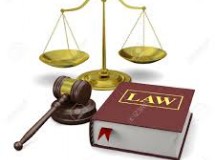Couples who live together, or who are 'cohabiting', enjoy certain legal rights and protection in Scotland. Although some of these have been enforced for years, many new rules were introduced under the Family Law (Scotland) Act 2006 which aims to reflect the way families live today. The legislation also extends to same-sex cohabiting couples.
Cohabitation in Scotland - What You Need to Know.
It is important to remember that cohabiting couples have significantly fewer rights and responsibilities than couples in a marriage or a civil partnership. Indeed, it is not the case that if you live together for a certain amount of time, you automatically become common law husband and wife. In fact, there is no such thing in Scotland.
Nevertheless, there are laws are in place to protect you and your partner, as well as minimise legal and financial problems should you separate, or if one of you dies. These basic rights (as set out in the 2006 Act) cover the following:-
* The sharing of household goods bought during the period you were living together as a couple;
* The equal sharing of money derived from an allowance made by one partner for household expenses and/or property bought from that money (although this does not apply to the house which the couple cohabit);
* Financial provision if one partner has been put at a financial disadvantage due to decisions made during the relationship (eg. if one partner gives up work to care for their children);
* Sharing the costs of bringing up children a couple has had together;
* A right to apply to court for part of an Estate if one partner dies without leaving a Will;
* The right to apply for an Exclusion Order or an interdict (eg. if your ex-partner is being abusive).
Cohabitation - Things You Need to Consider.
While there are laws to protect both adults and children living within a cohabiting household, there are still certain things you may want to consider to ensure your future well-being is safeguarded. These include:-
1. The House.
If the property is jointly owned, it will be split in accordance with each person's share should a cohabiting couple separate. However, unmarried couples do not automatically have a right over their partner's property. So if a property is in a sole name, then the other party may wish to establish there is a common intention for the property to be split on separation. This can be done by contributing towards the purchase price, contributing in some other way (for example, paying the bills) or with a Cohabitation Agreement (see below).
2. Wills.
If your partner dies without making a Will, it is usual for their Estate to pass straight to their immediate family. Although the 2006 Act now allows the remaining cohabiting partner to apply for an award, a sheriff may decide he/she is not entitled to anything. Therefore it is important for each person to make a Will, or you could be left with nothing.
3. Cohabitation Agreement.
A Cohabitation Agreement is much like a married couple with a pre-nuptial agreement. As a legally binding contract, it determines what should happen to assets in the event a couple separates. It can also help to establish the day-to-day life of a cohabiting couple, such as who should pay the bills. Therefore you can make arrangements for factors such as: property, debts, children, bills, and the division of assets. By having a clear written agreement, problems upon separation will be significantly reduced.
Cohabitation in Scotland - What You Need to Know.
It is important to remember that cohabiting couples have significantly fewer rights and responsibilities than couples in a marriage or a civil partnership. Indeed, it is not the case that if you live together for a certain amount of time, you automatically become common law husband and wife. In fact, there is no such thing in Scotland.
Nevertheless, there are laws are in place to protect you and your partner, as well as minimise legal and financial problems should you separate, or if one of you dies. These basic rights (as set out in the 2006 Act) cover the following:-
* The sharing of household goods bought during the period you were living together as a couple;
* The equal sharing of money derived from an allowance made by one partner for household expenses and/or property bought from that money (although this does not apply to the house which the couple cohabit);
* Financial provision if one partner has been put at a financial disadvantage due to decisions made during the relationship (eg. if one partner gives up work to care for their children);
* Sharing the costs of bringing up children a couple has had together;
* A right to apply to court for part of an Estate if one partner dies without leaving a Will;
* The right to apply for an Exclusion Order or an interdict (eg. if your ex-partner is being abusive).
Cohabitation - Things You Need to Consider.
While there are laws to protect both adults and children living within a cohabiting household, there are still certain things you may want to consider to ensure your future well-being is safeguarded. These include:-
1. The House.
If the property is jointly owned, it will be split in accordance with each person's share should a cohabiting couple separate. However, unmarried couples do not automatically have a right over their partner's property. So if a property is in a sole name, then the other party may wish to establish there is a common intention for the property to be split on separation. This can be done by contributing towards the purchase price, contributing in some other way (for example, paying the bills) or with a Cohabitation Agreement (see below).
2. Wills.
If your partner dies without making a Will, it is usual for their Estate to pass straight to their immediate family. Although the 2006 Act now allows the remaining cohabiting partner to apply for an award, a sheriff may decide he/she is not entitled to anything. Therefore it is important for each person to make a Will, or you could be left with nothing.
3. Cohabitation Agreement.
A Cohabitation Agreement is much like a married couple with a pre-nuptial agreement. As a legally binding contract, it determines what should happen to assets in the event a couple separates. It can also help to establish the day-to-day life of a cohabiting couple, such as who should pay the bills. Therefore you can make arrangements for factors such as: property, debts, children, bills, and the division of assets. By having a clear written agreement, problems upon separation will be significantly reduced.
SHARE




































